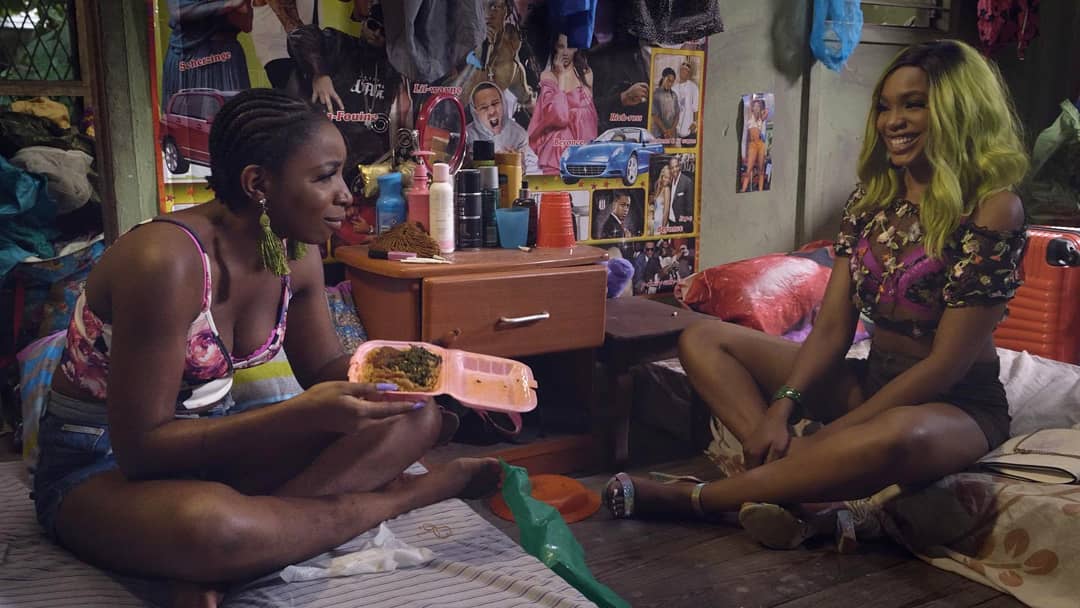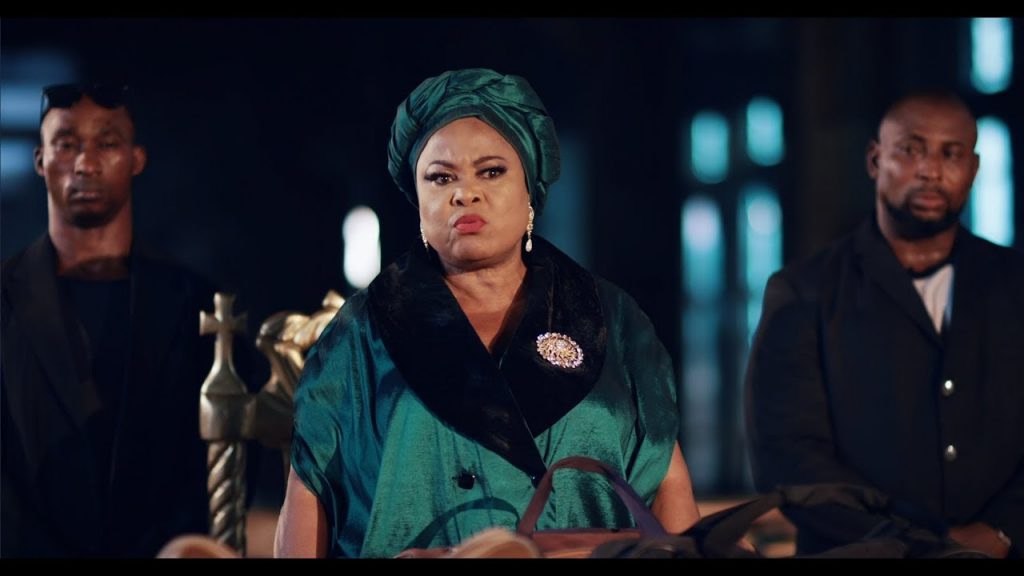We did not know that EbonyLife Films had it in them to produce a film so daring and unembellished. “Oloture” is a pleasant surprise. Is it thanks to director Kenneth Gyang? Whatever the case, it’s a milestone worth celebrating by executive producer Mo Abudu. And hopefully the turning point for EbonyLife Films which we have been yearning for.
“Oloture” becomes Netflix’s second Nigerian original film after “Lionheart.” But last year, Netflix released an original film “Joy” that explores the same subject of human trafficking. The Austrian filmmaker and director Sudabeh Mortezai raised the bar high such that those who have seen her film cannot but compare it with “Oloture.”
Indeed, there are similarities between “Joy” and “Oloture.” Early in “Oloture,” at the night club, the lead character acts very similar to Precious (Mariam Sanusi) in “Joy.” I guess prostitution newbies have one thing in common. Forcing victims into rituals or taking of oaths are widely associated with human trafficking in Nigeria. It is therefore not surprising to see that common element in both films.
So is “Oloture” bad? No. It is a good exposé on the challenges illegal immigrants face on this side of the Atlantic before the more harrowing experience in Europe that Mortezai aptly captures in her film. As such, “Oloture” will keep you glued to your screens and the music which features Osita Osadebe, Victor Olaiya and Falz amongst others will get you through the tense moments. Still, Oloture’s main character pales in comparison to “Joy.”
Sharon Ooja of “Skinny Girl in Transit” and “The Men’s Club” fame plays the title character Oloture, an investigative journalist who goes undercover to expose the shady underworld of human trafficking in Nigeria. She works with Emeka which is played by Blossom Chukwujekwu, Ooja’s co-star in “Who’s the Boss.”
The cast also includes Ikechukwu, Chuks, a pimp now relegated to the background and Lala Akindoju who plays a prostitute on whom he has a fixation. Omoni Oboli plays Alero, the madam and her accomplice Victor (Sambisa Nzeribe) is the courier. But they are not the kingpins. Still Alero is cold though not necessarily dreadful. The scenes in the hideout brought alive by Nzeribe are certainly the standout moments in the film. It is all thanks to the rawness and uninhibited display by the cast. Oboli’s command of Pidgin English makes her compelling. In general, the dialogue in Pidgin English and Edo languages, Bini and Etsako, lend credence to the casts’ performance.
However, there are several loose ends in Yinka Ogun’s screenplay. In the course of her investigation, Oloture makes several questionable choices. After heaving a sigh of relief on learning that Oloture is an undercover journalist she accepts an invitation to Sir Phillip’s (Patrick Doyle) party. What did think was going to happen? More so, that scene is half-baked. Besides, what’s the deal between Alero and Chuks? They clearly have history. The notion that Chuks is angry because he was made redundant by the Internet and dating apps does not explain it because Alero’s methods are still very conventional.
“Oloture” is an attention-grabbing title for this drama, yet it could have been called “Linda.” And it would have worked because Linda is a more appreciable character. We know her background and motivation, and she is given as much prominence as the lead.
Omowumi Dada plays Linda, Oloture’s roommate who was driven into prostitution by poverty. She is a breadwinner saving towards relocating to Europe. And she intends to take her naive 17-year old sister, Beauty (Bukola Oladipupo) with her, in search of greener pastures. Oloture learns of Linda’s plan and pretends to be interested. Sadly, it leads her down a dangerous path of no return. It’s also unfortunate for Beuaty who has lived all her life in a remote village. She has no clue how Linda intends to make the trip to Europe happen.
Many underage and ignorant Nigerian girls such as Beauty continue to fall prey to human traffickers whilst the industry continues to thrive. This fact is what makes Mortezai’s story, “Joy,” more outstanding. She concludes her story by showing why some women who are deceived into this life of prostitution cannot get out although they desperately want out.




